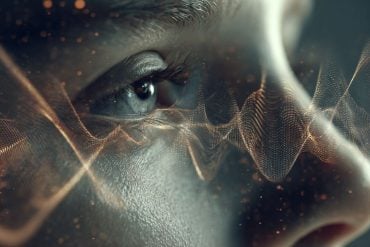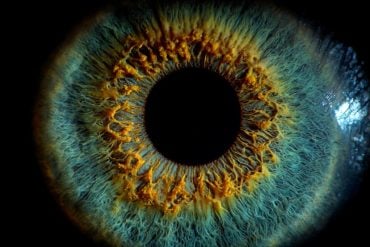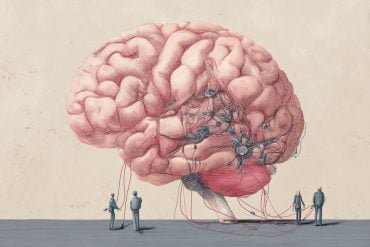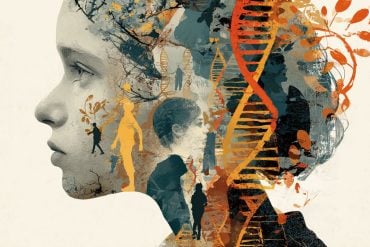Summary: According to a new study, having a first degree family member with epilepsy may increase a person’s chances of being diagnosed with autism.
Source: AAN.
Having a first-degree relative with epilepsy may increase a person’s risk of being diagnosed with autism, according to a study published in the June 15, 2016, online issue of Neurology.
“Other studies have linked the two conditions, however, our study looks specifically at the brothers and sisters and sons and daughters of people with epilepsy to determine a possible autism risk in these relatives,” said study author Heléne E.K. Sundelin, MD, with University Hospital in Linköping, Sweden.
For the study, researchers looked at a data registry and identified 85,201 people with epilepsy, as well as all of their siblings (80,511 people) and offspring (98,534 people). Each person with epilepsy was compared with five people without epilepsy of similar age, sex and from the same county during the same period. The siblings and offspring of those with epilepsy were also compared with siblings and offspring of people without epilepsy. Siblings and offspring who had epilepsy were excluded from the research.
During the average six-year follow-up period of the study, 1,381 of participants with epilepsy and 700 of the people without epilepsy were diagnosed with autism. People with epilepsy were therefore at increased risk of being diagnosed with autism (1.6 percent compared to 0.2 percent), with the highest risk seen in those diagnosed with epilepsy in childhood (5.2 percent).

The study found a 63 percent increased risk of developing autism for siblings and offspring even when the person with epilepsy was excluded. Offspring of mothers had a 91 percent increased risk and offspring of fathers had a 38 percent increased risk.
“The goal is to find out more about how these two diseases may be linked so that treatments may be developed that will target both conditions,” said Sundelin.
Fuding: The study was supported by the Swedish Research Council, the Swedish Initiative for Research on Microdata in the Social and Medical Sciences, the Swedish Research Council for Health, Working Life and Welfare, the Swedish Research Council and the Stockholm County Council.
Source: Rachel Seroka – AAN
Image Source: This NeuroscienceNews.com image is in the public domain.
Original Research: Abstract for “Autism and epilepsy: A population-based nationwide cohort study” by Heléne E.K. Sundelin, Henrik Larsson, Paul Lichtenstein, Catarina Almqvist, Christina M. Hultman, Torbjörn Tomson, and Jonas F. Ludvigsson in Neurology. Published online June 16 2016 doi:10.1212/WNL.0000000000002836
[cbtabs][cbtab title=”MLA”]AAN. “Epilepsy in Immediate Family Member Increases Your Risk of Autism Diagnosis.” NeuroscienceNews. NeuroscienceNews, 16 June 2016.
<https://neurosciencenews.com/familial-epilepsy-autism-4497/>.[/cbtab][cbtab title=”APA”]AAN. (2016, June 16). Epilepsy in Immediate Family Member Increases Your Risk of Autism Diagnosis. NeuroscienceNews. Retrieved June 16, 2016 from https://neurosciencenews.com/familial-epilepsy-autism-4497/[/cbtab][cbtab title=”Chicago”]AAN. “Epilepsy in Immediate Family Member Increases Your Risk of Autism Diagnosis.” https://neurosciencenews.com/familial-epilepsy-autism-4497/ (accessed June 16, 2016).[/cbtab][/cbtabs]
Abstract
Autism and epilepsy: A population-based nationwide cohort study
Objective: To investigate the risk of autism spectrum disorder (ASD) in individuals with epilepsy and in their first-degree relatives to determine shared etiology.
Methods: Through the Swedish Patient Register, we identified 85,201 individuals with epilepsy, as well as all their siblings (n = 80,511) and offspring (n = 98,534). Each individual with epilepsy was compared with 5 controls, matched for age, sex, calendar period, and county, while siblings and offspring were compared with siblings and offspring of controls. We excluded siblings and offspring with epilepsy. Using Cox regression, we calculated hazard ratios (HRs) for future diagnosis of ASD. Logistic regression was applied to calculate odds ratios (ORs) for prior diagnosis of ASD.
Results: During follow-up, 1,381 (1.6%) individuals with epilepsy and 700 (0.2%) controls were diagnosed with ASD. Individuals with epilepsy were therefore at increased risk of future ASD (HR 10.49, 95% confidence interval [CI] 9.55–11.53), with the highest risk seen in individuals diagnosed with epilepsy in childhood. Both siblings (HR 1.62, 95% CI 1.43–1.83) and offspring (HR 1.64, 95% CI 1.46–1.84) of epilepsy patients were at increased risk of ASD. The risk in the offspring was particularly high in mothers with epilepsy (HR 1.91; 95% CI 1.63–2.23). Epilepsy was also associated with a prior diagnosis of ASD (OR 4.56, 95% CI 4.02–5.18).
Conclusions: Individuals with epilepsy are at increased risk of ASD, especially if epilepsy appears in childhood. Further, ASD is more common in the siblings and offspring of individuals with epilepsy, suggesting shared etiology.
“Autism and epilepsy: A population-based nationwide cohort study” by Heléne E.K. Sundelin, Henrik Larsson, Paul Lichtenstein, Catarina Almqvist, Christina M. Hultman, Torbjörn Tomson, and Jonas F. Ludvigsson in Neurology. Published online June 16 2016 doi:10.1212/WNL.0000000000002836







